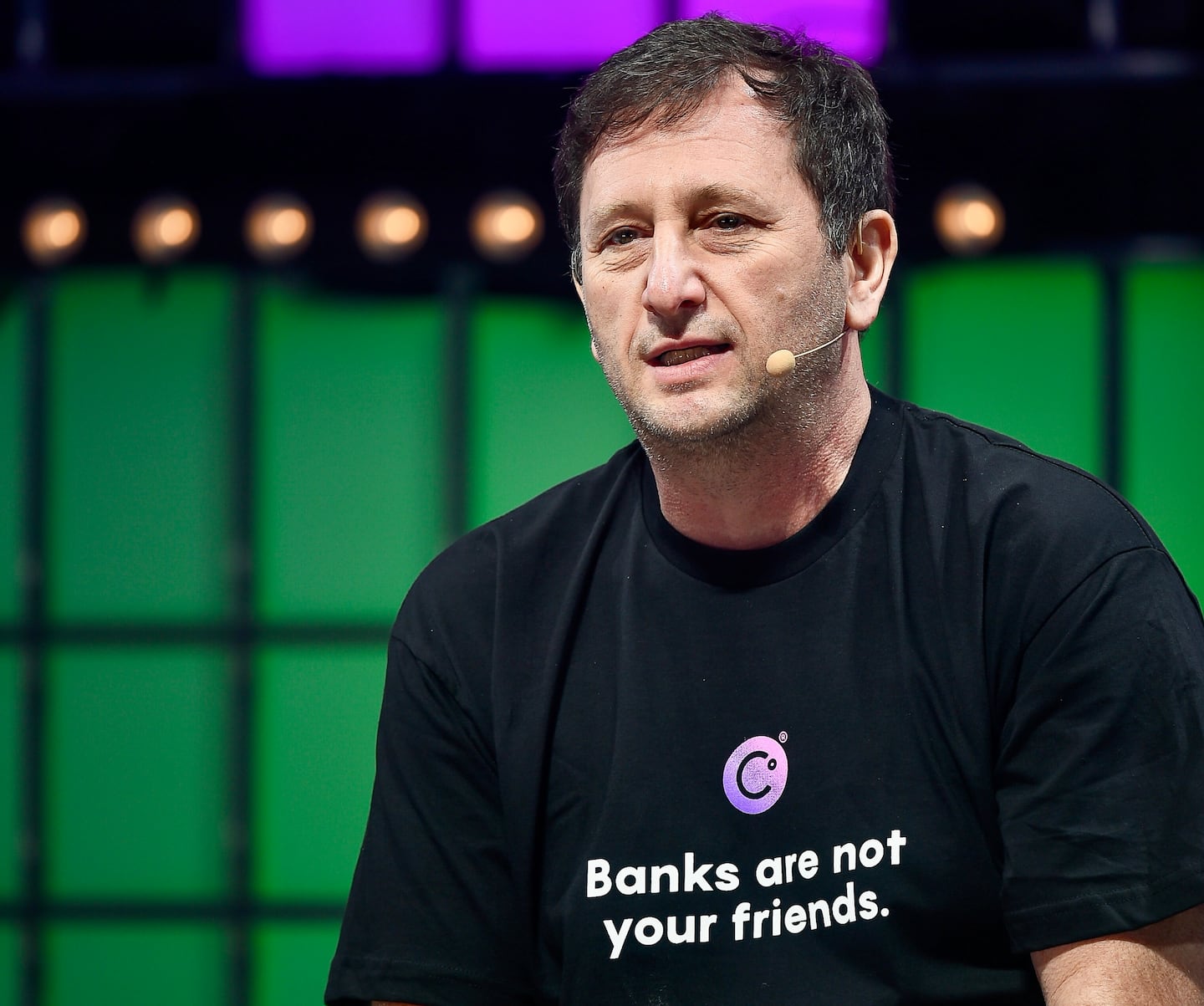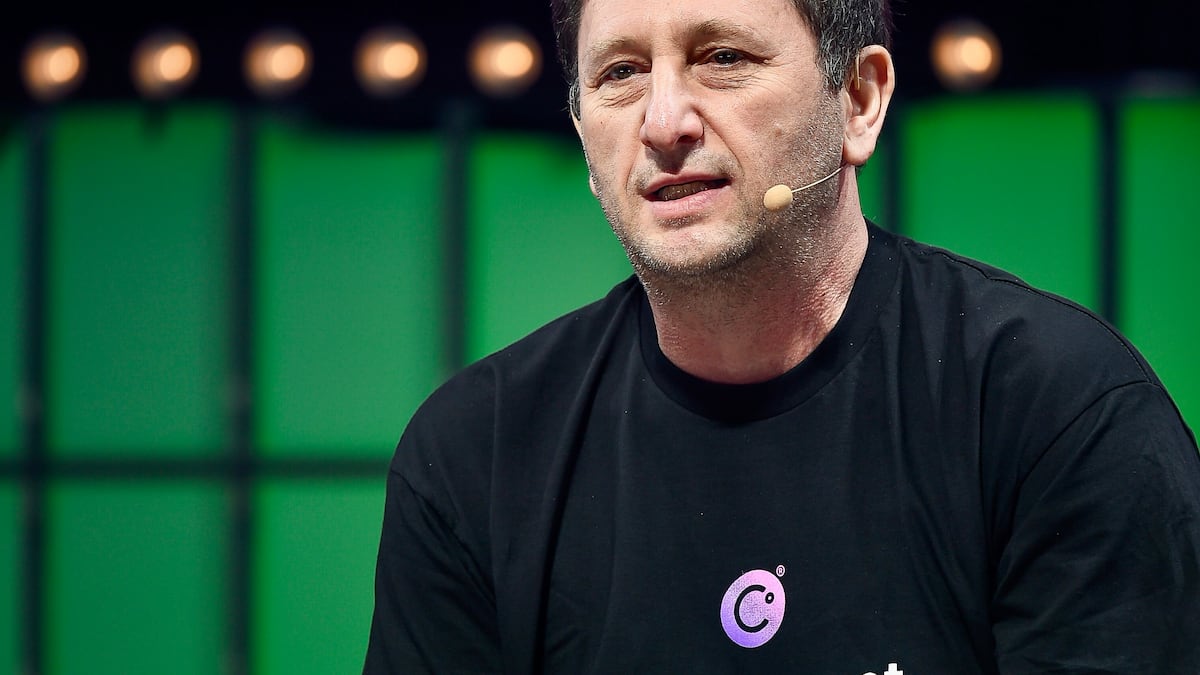- Mashinsky rapidly built a crypto lending empire.
- It collapsed even faster in 2022 before the fall of FTX.
- A US judge rejected his plea for a light sentence.
Alex Mashinsky, the former CEO of bankrupt crypto lender Celsius, received a 12 year prison sentence Thursday for his role in the company’s collapse in 2022.
Judge John G. Koeltl, of the Southern District of New York, acknowledged Mashinsky’s refugee status — his parents fled the Soviet Union to escape antisemitic persecution — his history as a combat veteran, and his otherwise spotless business record.
“On the other hand, a substantial sentence is still necessary given the seriousness of the offense,” Koeltl said.
Clad in a black suit and blue tie, Mashinsky suggested he had become the scapegoat for the behaviour of renegade employees.
“I’m taking responsibility for 1,000 employees,” he said after Koeltl announced the sentence.
“No one has come forward and admitted anything they’ve done.”
‘His crimes were not the product of negligence, naivete, or bad luck.’
— US prosecutors
In December, Mashinsky pleaded guilty to two counts of fraud.
His attorneys had requested a sentence of just one year, arguing that his guilty plea demonstrated he had taken responsibility for his crimes and that the company’s collapse was the result of market forces beyond his control, rather than the lies he told Celsius investors.
Prosecutors rejected the request and sought a sentence of 20 years, arguing Mashinsky had attempted to downplay his crimes after his guilty plea in a bid for a lighter sentence.
“His crimes were not the product of negligence, naivete, or bad luck,” they wrote in an April 29 letter to the judge.
“They were the result of deliberate, calculated decisions to lie, deceive, and steal in pursuit of personal fortune.”
‘Venom-laced’
Mashinsky’s lawyers, in turn, said the “venom-laced” request would amount to a “death-in-prison sentence” for the 59-year-old Mashinsky.
Founded in 2017, Celsius pitched itself as an honorable alternative to greedy banks, which generate enormous revenue by loaning out customer deposits while paying customers rock-bottom interest, pocketing the difference.
Celsius had a similar model. It would accept customer crypto which it then loaned to institutions with interest. Instead of stiffing depositors with 1% interest, however, it would pay sky-high yield.
Its model collapsed in 2022 as a series of crypto scandals led panicked users to withdraw their crypto en masse. Unable to honor withdrawal requests, Celsius declared bankruptcy that June.
Mashinsky was eventually indicted on seven counts of fraud.
‘He enriched himself while destroying lives, and even today refuses to acknowledge what he did.
— US prosecutors
Prosecutors alleged Mashinsky knew Celsius’ business model was unsustainable and directed employees to use investor money and customers’ own deposits to pay the outsize interest the company had promised.
At the same time, Celsius was taking risky bets with customer deposits and making unsecured loans to crypto lenders, prosecutors said.
They also alleged Celsius manipulated the price of its CEL token, fearing any drop would be interpreted as a sign the company was struggling.
Profitable and sustainable
All the while, Mashinsky told investors Celsius was profitable and sustainable; that rewards paid to customers came from its revenue; that it had enough crypto on hand to repay customers in the event of a bank run; that he wasn’t selling his personal CEL; and that CEL’s price was determined by the market, rather than Celsius’ own manipulation of the token’s price.
In December, he pleaded guilty to two charges: lying about Celsius’s financial condition and operations in order to convince investors to deposit their Bitcoin; and defrauding investors who bought the company’s token, CEL, by manipulating its price and lying about selling his own personal holdings.
In their request for a lenient sentence, Mashinsky’s attorneys cited only two instances in which he lied to investors.
There was a December 2021 interview in which he said Celsius had received regulators’ blessing. In fact, the company was under investigation by the Securities and Exchange Commission.
And there was a social media post in September 2019 in which he said he was not selling his Celsius tokens. But he was selling, and would ultimately earn $46 million from those sales.
Ultimately, Celsius’s bankruptcy was the result of a “market collapse the likes of which the crypto industry had never seen,” Mashinsky’s lawyers said — not a multi-year scheme to enrich himself at investors’ expense.

Prosecutors said that grossly understated Mashinsky’s role in Celsius’ bankruptcy.
The company was never profitable, and Mashinsky knew as much, according to prosecutors.
By April 2021, two thirds of Celsius’ balance sheet was denominated in loans it had made, posted collateral, and CEL, all difficult to sell in the event of a bank run.
‘The government would have the Court believe that Alex was born at 59 years old a fiend.’
— Mashinsky's lawyers
During regular ask-me-anything sessions on social media, Mashinsky said Celsius was thriving.
But government exhibits show employees panicking over his refusal to change his rhetoric and business approach, despite warnings they could run afoul of the law.
“Alexander Mashinsky committed a massive fraud: through calculated deception and exploitation, he inflicted catastrophic financial and emotional harm on thousands of victims,” prosecutors wrote.
“He enriched himself while destroying lives, and even today refuses to acknowledge what he did.”
Failure to agree
In a letter to the judge filed May 2, Mashinsky’s lawyers said prosecutors had ignored his background as a persecuted Ukrainian émigré, Israeli war veteran, and business executive with decades of experience in order to dehumanize him.
“The government would have the Court believe that Alex was born at 59 years old, a fiend,” they wrote.
In fact, the government had cherry-picked Celsius’ internal documents and Mashinsky’s public statements to make its case, while ignoring documents suggesting Mashinsky was speaking in good faith and statements in which he cautioned users against depositing their life savings.
“A failure to agree with every last loaded accusation is not a failure to accept responsibility for the crimes of conviction or a failure to recognize the gravity of the situation.”
In the courtroom
But Koeltl said Mashinsky had failed to rebut several instances of alleged fraud detailed in a presentencing report, including lies concerning the amount of money Celsius had raised in its initial coin offering, the company’s risk management practices, the manipulation of CEL’s price, and more.
And Mashinsky’s attempt to downplay his role in Celsius’ collapse by citing only two examples in which he lied to investors appeared to violate the spirit of his December plea agreement, the judge suggested.
Before receiving his sentence, Mashinsky, tearful and contrite, addressed the judge as his wife and other family members in attendance watched.
“I never wanted to hurt anyone, I never wanted to target anyone,” he said, choking up.
“I wanted Celsius to be a service to help people. I destroyed that, and I am sorry.”
It was an argument his attorneys had delivered moments earlier.
Defence attorney Torrey Young said Celsius had been founded to help people, and managed to assemble an executive team featuring alumni from major law firms and financial institutions, including Bank of America, Morgan Stanley, and the Royal Bank of Canada.
In short, Celsius was “neither created nor operated as an instrument to fleece people.”
Another defence attorney, Michael Westfal, said the “portrayal of Alex as some sort of financial serial killer who set out to harm people is a hoax.”
Some of Mashinsky’s own colleagues appeared to believe Celsius was in good financial standing just days before the company’s bankruptcy filing, Westfal said, citing public statements they had made at the time.
Moreover, Mashinsky had always told customers they should not put money saved for retirement nor their life savings in Celsius, given the volatility of crypto markets, according to Westfal.
That did not minimise the seriousness of the lies he repeatedly told during his ask-me-anything sessions, prosecutor Allison Nichols said.
During one such session, Mashinsky said no Celsius borrower had never defaulted on a loan, potentially putting customer deposits at risk — but it would certainly happen at some point, and he would tell customers when it did, he added.
In fact, Mashinsky had already been notified that a borrower had, in fact, defaulted on its loan, according to Nichols.
“Mashinsky is not just lying,” she told the judge.
“He is saying it in this folksy way that purports to be transparent. It was this affect that induced so many customers to trust him. ... He had calculated a persona for maximum effectiveness.”
It had worked on 68-year-old David Moran, a victim who drove 800 miles to attend Thursday’s sentencing hearing.
“What I used to tell people in my neighborhood is, ‘He’s the only one who comes out every week and gives us the numbers. You can trust him,’” Moran said outside the courthouse. “And it was just a scam.”
Before Celsius’ collapse, Moran sold his New Hampshire home and bought a van he planned to live out of as he traveled the country — “a bucket list thing,” he said.
He put the proceed from the sale into Celsius.
“I got down as far as North Carolina from New Hampshire, and I woke up and found my account locked,” he said.
“I took a shower last night at a truck stop because the van I drove up in is my legal residence.”
Hollis Waite, a 49-year-old father of two, also lost money in the Celsius bankruptcy.
Waite said the 12 year sentence felt like a “fair outcome.”
He didn’t want vengeance, Waite said. But he wanted a sentence that would send a message to other would be white-collar criminals.
“It feels like crime is legal lately,” he said.
Aleks Gilbert is DL News’ New York-based DeFi correspondent. You can reach him at aleks@dlnews.com.


